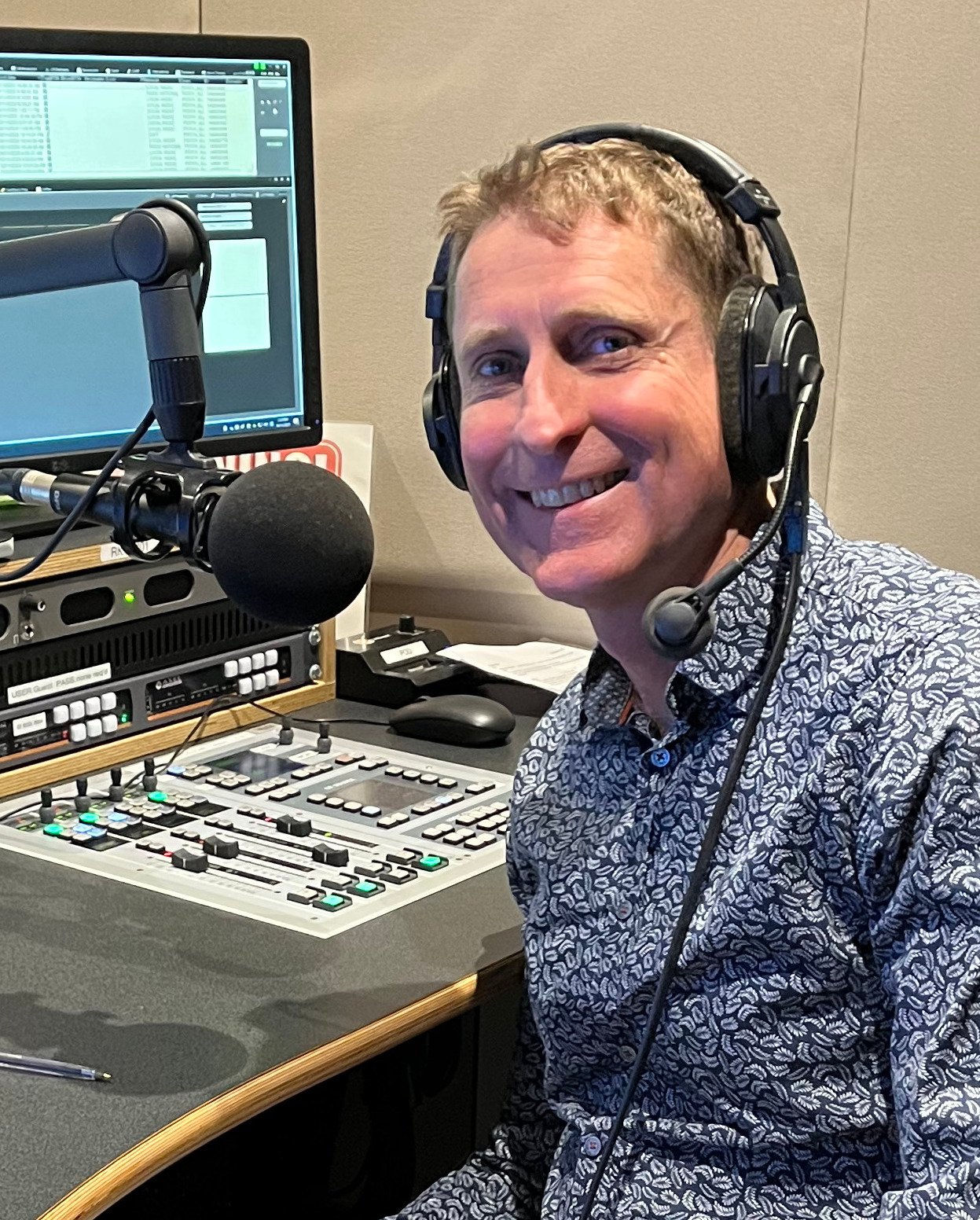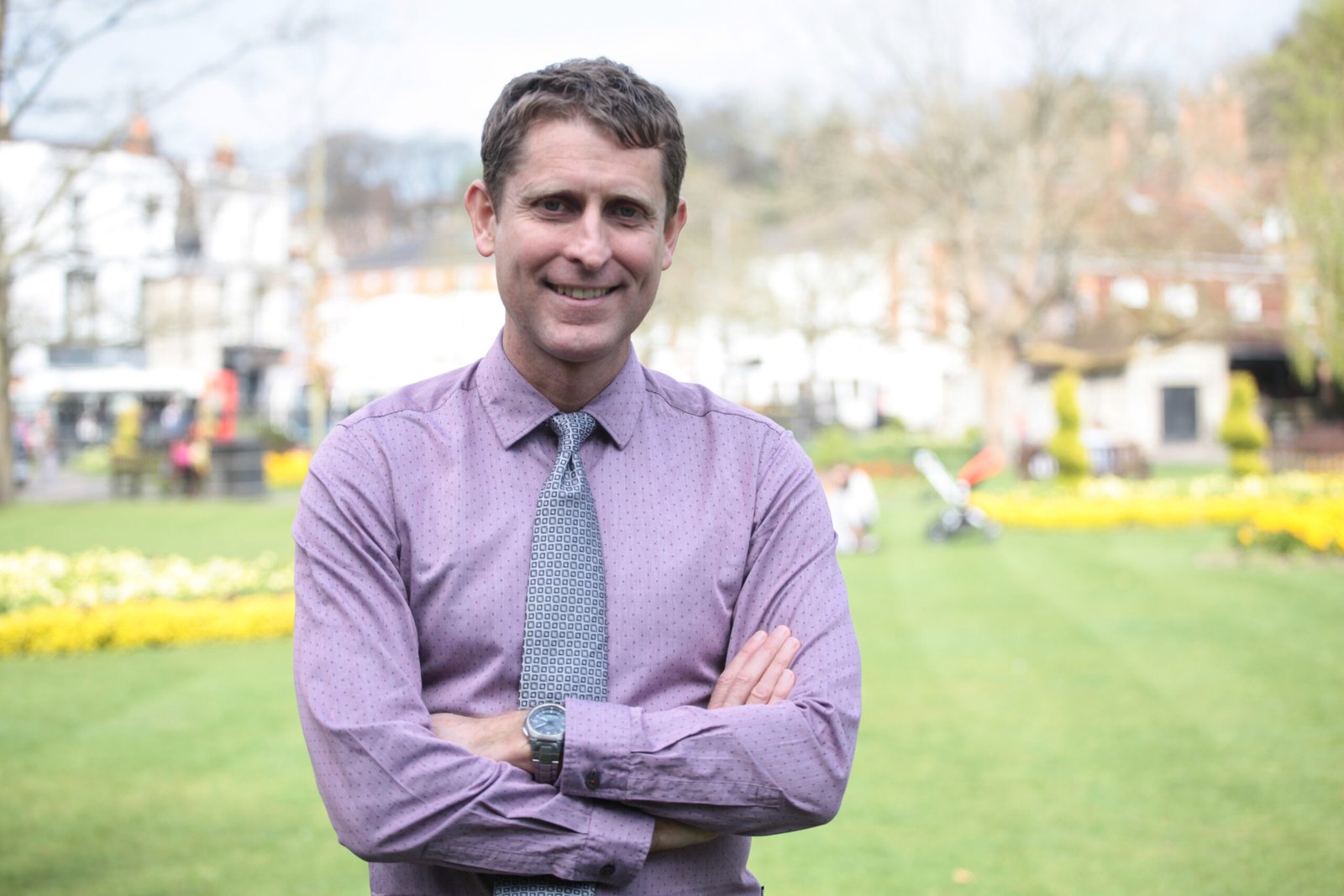Tell us about your journey! What led you to this point?
I was born in Perth, Western Australia—a city renowned for its beauty but also known for its significant role in the live sheep export industry. In the mid-1990s, Perth exported about five million sheep annually, primarily to the Middle East, with voyages often resulting in the deaths of 100,000 to 150,000 sheep each year due to poor conditions onboard. Witnessing these animals packed into trucks and sensing their fear motivated me to help launch a campaign against the live sheep export trade in Australia. Our efforts saw tens of thousands protest, especially after a ship caught fire and sank in 1996, killing nearly 70,000 sheep. After nearly three decades of advocacy, we’re nearly there—in 2024, the Australian government announced plans to ban the trade by 2028.

I often spoke to the media about the trade, but my lack of formal qualifications became an issue. Realizing the need
for advanced credentials to be taken seriously by stakeholders, I decided to try to get into veterinary school. I succeeded, but soon ran into wholesale animal killing within the veterinary curriculum, within surgical training and preclinical subjects such as anatomy and physiology. I then launched a huge campaign for humane teaching methods, which was ultimately successful, although it took so much time and energy that I almost failed my degree.
After graduating, I practiced as a small animal veterinarian in London for almost ten years. In 2013, I joined the faculty of the world’s second-largest veterinary school in the Caribbean, where I came to love the many sea turtles and monkeys I would regularly encounter.
In 2015, I was invited to establish a Centre for Animal Welfare at the University of Winchester in the UK. We launched three degree programs and quickly became a leading institution in the field, focusing our research and outreach on addressing animal abuses in various sectors, and effecting tangible change. In 2023, I left academia to found my own nonprofit, dedicating myself full-time to animal advocacy, particularly the benefits of nutritionally sound vegan pet diets. Since 2021, I have published nearly ten articles and delivered over 25 talks annually at conferences and universities worldwide. For the first time, I am fully immersed in work that I love, making a meaningful impact on animal welfare and the environment.
What has been your biggest achievement?
By 2023, research had established the significant environmental impact of animal-based pet foods. For example, a 2017 University of California (Berkeley) study found that pet diets accounted for 25–30% of the US livestock sector’s environmental footprint. Another study revealed that a medium-sized dog’s dietary ecological “paw print” compared to that of an average Japanese person. However, no one had yet calculated the environmental savings possible if the world’s pet dogs and cats switched to nutritionally sound vegan diets, so I undertook this research.
The findings were striking. Globally, at least seven billion animals are killed each year to feed pets. Transitioning all pet dogs to vegan diets could save greenhouse gas emissions equivalent to 1.5 times those produced by the entire UK. For humans, a complete transition would save more emissions than the entire EU generates. Land and freshwater use would also decrease dramatically. If all humans adopted vegan diets, the land saved would exceed the combined area of Russia (the world’s largest nation) and India, opening opportunities for rewilding, carbon capture, and biodiversity gains.
Additionally, the food energy saved could feed millions more people: vegan diets for all pet cats could feed 70 million people (more than the UK’s population), for all dogs, 450 million people (more than the EU’s population), and for all humans, at least 5.3 billion people—about two-thirds of the global population.
This research shifted the paradigm, revealing that sustainable diets are not just a human issue—pet diets also play a significant role and must be part of the transition to more sustainable food systems.
I’ve somehow risen to the top of my field internationally, with 2 PhDs, 15 awards, and 500+ media mentions annually covering my work, but none of that matters compared to this. Providing this new understanding has been my most important achievement.
What’s the biggest result you help your clients achieve?
As one of the most highly qualified animal welfare advocates internationally, I’m a global resource for the animal advocacy movement. I work with many organisations to support their campaigns to advance animal protection. With my small team of collaborators, I publish a large number of scientific studies highlighting the adverse animal welfare and environmental implications of numerous uses of animals, on intensive farms, in laboratories, and elsewhere. I present my work at 25+ universities and conferences annually, and conduct weekly media interviews supporting a wide range of animal advocacy causes. I bring scientific credibility and impact to the campaigns of animal protection organisations around the world.
What would be your biggest piece of advice for readers who want to achieve the same?
Over 90 billion farmed land animals and 1-3 trillion fish are killed in our food system annually, and human activity is currently creating the 6th mass extinction event since fossil records began. These are events in which the majority of all living creatures die within a short timespan. There could hardly be a greater need for effective animal advocates, or a greater opportunity to put a lifetime to good use. Hence, I advise anyone with the opportunity to become an animal advocate—and an effective one.
For those seeking to maximise their personal effectiveness, and in a position to do so, I advise pursuit of a professional career, such as a veterinary, biological or environmental degree, or law. Regardless of the pathway chosen, however, certain characteristics are essential if people want to excel. My top three include:
Tenacity (Grit): Success often requires overcoming adversity and persisting when challenges arise. Such obstacles are guaranteed for anyone seeking to change the world for the better.
Communication skills: Strong communication and interpersonal skills are essential for anyone seeking to influence or work with others.
Focus: above all, the ability to concentrate on key goals and avoid distractions is essential to achieving excellence in virtually any field. This often means saying “no” to other opportunities or interests.
What are the biggest mistakes you see people make, and how can they be avoided?
A lifetime is an incredible opportunity and a gift. Too often, people waste their time by not thinking critically. They don’t really think about how they can maximise the amazing opportunity they’ve been given, and become the best version of themselves. Instead, they just absorb whatever culture they’ve been born into. To excel, you have to be willing to think for yourself. You need to dare to be different.

Apart from being willing to think critically, the next biggest mistake I see otherwise well-meaning people make is being unwilling to think strategically, and to apply that to one’s advocacy. Effective altruism is a school of thought that encourages us to think about our opportunities to do good and to choose the ones that have the greatest impact. It encourages us to consider which issues affect the greatest number of sentient individuals, are most neglected, and are most open to meaningful change. Instead, people often focus on whatever issue happens to come across their path. In contrast, I encourage people to think strategically and to set their own agendas.
How do you plan on further growing your business?
Given the massive, adverse environmental impacts of meat-based pet food, which is only rising as pet numbers rapidly increase, we very urgently need more people working on sustainable pet diets. Hence, I’ve recently established a UK nonprofit—the Sustainable Pet Food Foundation. I’m now seeking funding to employ others, to scale up this work.
Where can the readers find you?
For updates on my research and animal advocacy work, readers can follow me on:
LinkedIn: https://www.linkedin.com/in/andrew-knight-409b7434
Facebook: https://www.facebook.com/profile.php?id=100046421604769
Instagram: https://www.instagram.com/andrewknightvet/
YouTube: https://www.youtube.com/c/andrewknight
I regularly share insights and updates about my ongoing projects and campaigns on these platforms.

